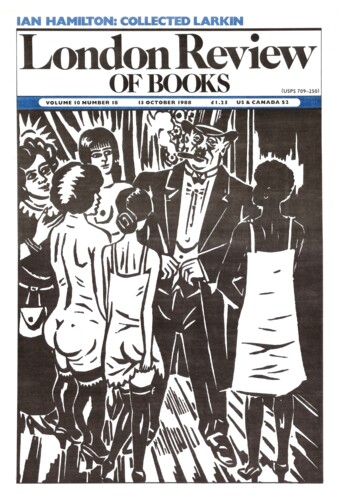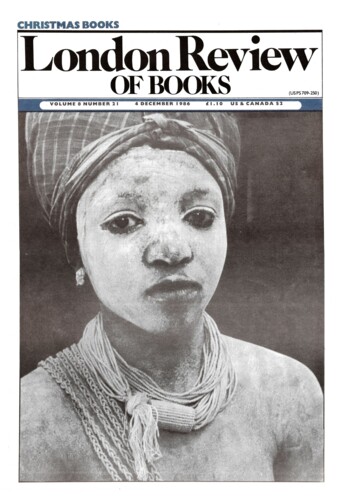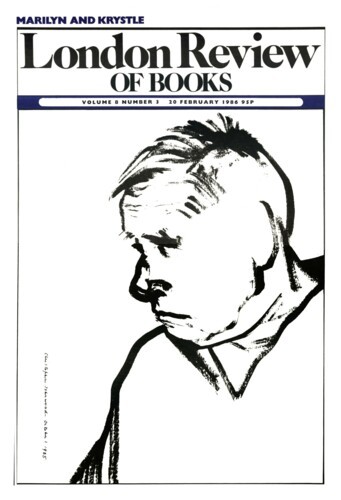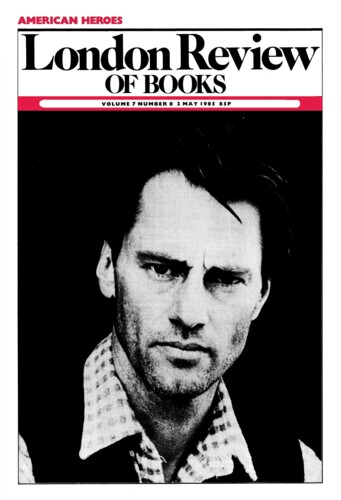World’s End
John Ryle, 13 October 1988
European and American imperial expansion carries with it an apocalyptic strain in which the march of empire is identified with the coming of the Kingdom of God, the Kingdom of the Last Days. According to this millenial view, the prospect of the Christian message finally being heard in every part of the world brings mankind near to the end of time, a moment predicted in the Book of Revelation. It comes when the Great Commission of Matthew 28:19 to the Apostles is fulfilled, when disciples have been made among all peoples. At this point there appears ‘a great multitude … from every nation, from all tribes and peoples and tongues … crying out with a loud voice “Salvation belongs to our God” ’. These events usher in the new heaven and earth foreseen by St John where righteousness reigns and death is no more.





